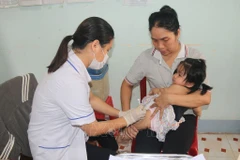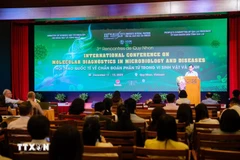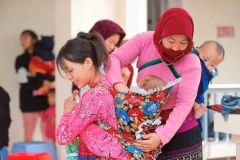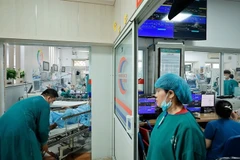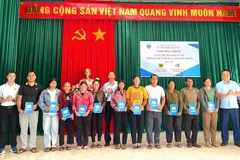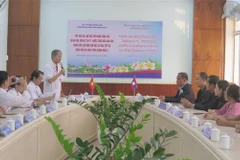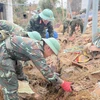The network organises this annual conference to strengthen coordination and cooperation among its 13 member cities, including Hanoi, Bangkok, Jakarta, Kuala Lumpur, Manila and Seoul, in the effort.
During the three-day event, the delegates will focus on several important issues, including current infectious diseases, models of supervising influenza and controlling diseases during and after natural disasters, and the treatment and management of patients with HIV/AIDS and tuberculosis.
It also offers an opportunity for scientists, policy-makers andexperts to exchange their experiences and put forward measures andaction plans to deal with infectious diseases around the region.
The increasing development of a number of infectiousdiseases such as dengue fever, HIV/AIDS, tuberculosis, encephalitis,diarrhea, cholera, measles and rabies has been a burning issue in Vietnam in the past decade, said Associate Professor Nguyen Tran Hien, Director of the National Institute of Hygiene and Epidemiology.
The country has adopted many measures to address the issue, including improving the quality of contagious disease control systems at all levels, combining prevention with treatment, raising the outreach and quality of expanded vaccination programmes and conducting vaccination campaigns in epidemic affected and epidemic-prone areas, he said.
Additionally, Vietnam launched communications campaigns to raise public awareness of infectious diseases and measures to prevent them.
The campaigns also aim to encourage people to coordinate with the health sector in monitoring and controlling the diseases.-VNA
